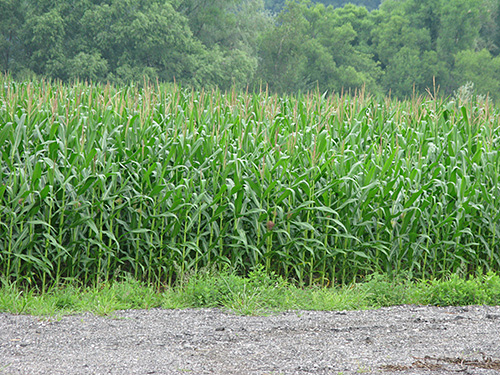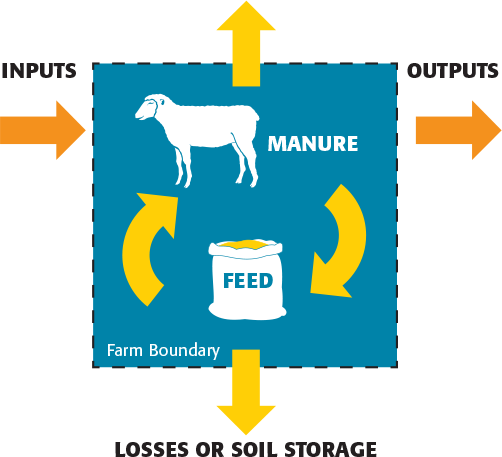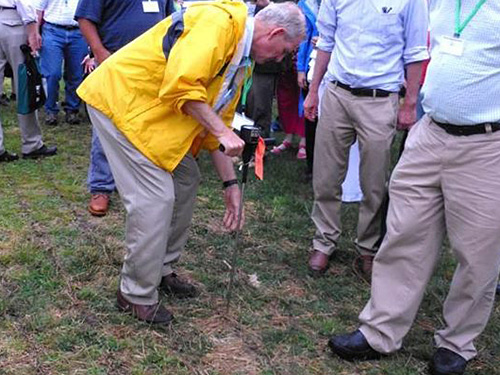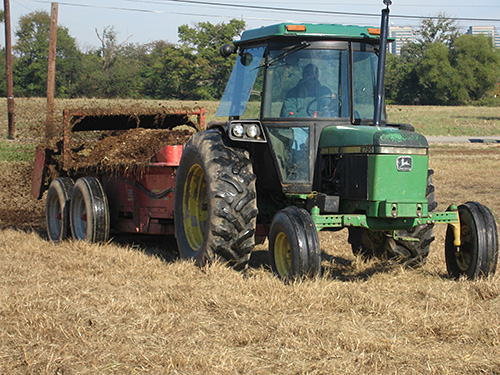
All animals and plants need nitrogen (N) and phosphorus (P), but when manure is not well managed these nutrients can degrade water quality. Livestock and poultry farmers must maintain a balance between the nitrogen and phosphorus arriving and leaving the farm. These nutrients are contained in feed and fertilizer and leave the farm in animals, animal products, crops, and animal waste. If more nitrogen and phosphorus arrive on the farm than leave it, these nutrients accumulate in the soil. The potential for water quality degradation increases if these nutrients are carried away by storm water into streams and ponds or seep into water wells.
Things to Consider When Selecting Fields for Manure Spreading
- Hydrologic Investigation - Streams/lakes/aquifers/water tables
- Soils - Soil depth and texture; Avoid slopes > 10%
- Neighbors - Odors, nuisances, and common courtesy
Nutrient Management Considerations When Spreading Manure
- Apply manure with the highest N content in the spring or fall and with the lowest in the summer
- Match manure value to crop yield potential. Match high N manure with crops with a high N requirement; and high P manure to soils with the lowest P levels.
- If manure is spread on pastures grazed by livestock, pastures can be infected with parasites
Recycling of Nutrients




